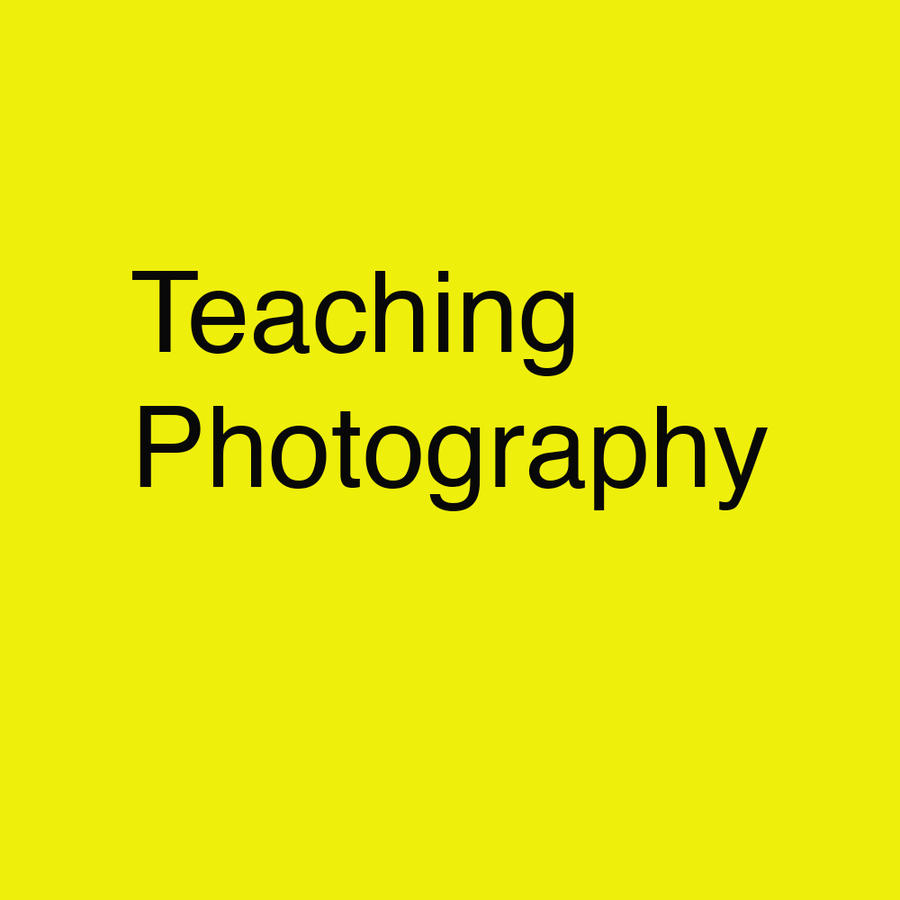A Good Teacher

What makes for a good teacher? While here we are speaking about photography much of this article will apply elsewhere as well and, just to define at what level I am writing about, I am referencing teaching photography at the university level. What kind of teacher does it take to impart necessary skills but also guide, cajole and motivate too? And can a teacher have a positive effect longer after a student graduates?
A very long time ago, I had two photography teachers that did just that, in their own individual ways: Harry Callahan and Aaron Siskind. While their art and working system still have their influence on me even today, their effect as teachers served me well throughout my career as a photography educator.
I knew I was interested in teaching while I was still a student so I studied these two men for how they taught. Callahan was essentially a non-verbal person, restrained, socially ill at ease and had difficulty saying what he meant. All of his emotions could be in his photographs, but expressing his feelings and thoughts in a classroom were difficult for him. The effect of this, of course, was for us as his students to listen carefully, for when he did say something it could have large importance. Siskind, on the other hand, was a born teacher and was very social, outgoing and gregarious. Words flooded out of him and he was adept at finding the essence of the work he was critiquing. He was also extremely calculating, even manipulative, understanding that favoring one student over another could boost a competitive character in a graduate classroom or that ignoring a student's work might force them to question its worth.
As a young and new teacher with a position in the first year program at New England School of Photography in Boston in the fall of 1975 I carried those two men's principles and methods into my classroom. There were other parts in my makeup as a teacher, of course, like my Dad's work ethic, my mom's paintings and love of art, my mid 20th century aesthetic that was minimalistic, abstract and modern and the effect of the work and discoveries I was making as a young and emerging artist.
I also understood that the responsibility and power of standing at the front of a classroom of 25 students was not to be taken lightly. While teaching the nuts and bolts of making photographs was needed first and had its own demands I worked to open the door to ideas being expressed, to give students enough self confidence to take the plunge on some obscure idea or experiment or show that they would learn as much from their classmates as they would from me. That photography could be a wonderful way to increase awareness and to enjoy learning. All this evolved, of course, as I started teaching the super quick students at Harvard a few years later and then began the main part of my teaching career at Northeastern University in 1981.
Classic student scenario: some poor kid, a freshman or sophomore in a university as some sort of default position, there as parents forked up the tuition perhaps partially to get the kid out of the house, not knowing what they are doing, not knowing or caring why he/she is in a given major, smart enough not to fail but not knowing enough to grab life now, aimlessly selecting courses and electives through a "least resistance" principle of what looked like easy courses, as guts, like Badminton 101, Intro to Music or Intro to Photography. Lost and floundering. Probably drinking and into drugs, these usually playing a part. This is the dreaded poor retention in colleges and universities and constitutes a real hump to get over in those first two years.
A teacher walks into that intro photo class and challenges students to try, to work and to learn, shows that there is a thing called "individual creative expression" that is encouraged and even required in his/her class. And can show work that proves that photography is very very cool. The teacher gives permission to try, gives permission to fail without recrimination, gives permission to put student efforts up on a pin board, to show what they've done and to share ideas with others, put their own work up there, stuff they've made.
Over a long career I can say I changed peoples' lives for the good. I don't want to sound evangelistic but photography became a positive force in literally thousands of students' lives over my teaching career.
Hopefully this doesn't sound crass but I would tell photo teachers as I hired them that the intro to photo class at Northeastern was the primary marketing device we had to the curriculum of upper level classes and the concentration itself. The Photo Program was pyramidal in that the intro class was the primary way to drive students to the major and to the higher level classes.
A good teacher should exert less control and influence in the upper classes as time goes on as the goal needs to be staying within the discipline with increasing independence. We worked on this in a year-long thesis class I taught for years. Things like interviewing skills, one-on-ones, resume writing, cold calling and portfolio preparation and presentation loomed large. By the time they were finishing, students would no longer need to turn to me for answers, nor should they. We worked on a self support system, how to get the necessary information by doing the research themselves or forming a group of classmates to help in getting a project done, a thesis completed or a portfolio printed. I wanted my photography students in the program I ran to succeed: meaning make a living with their photographs, exhibit their work or teach their love of it to others.
A good teacher needs to be many things and not all good photographers or artists are good teachers. I will leave you with this: teaching photography is not about the teacher, it is about the student.
Timing note: As I will be getting worked on a little next week the blog may take a break for a bit. No worries, a little surgery can't stop this artist and blogger down for long. I may slip in a couple of posts from past under read pieces in the interim as fill in as in my experience readers don't mine the back catalog much. I wish they did.

